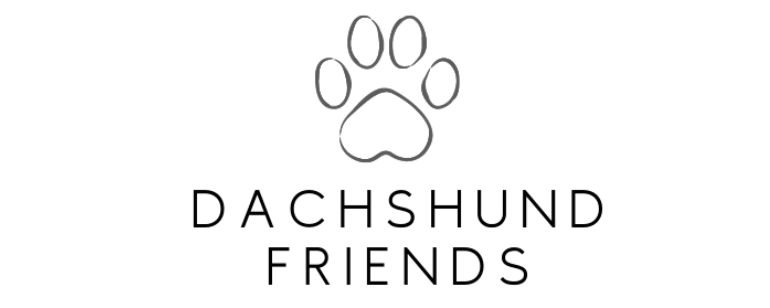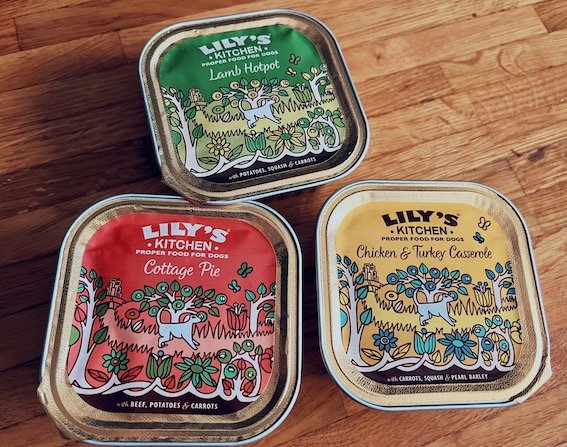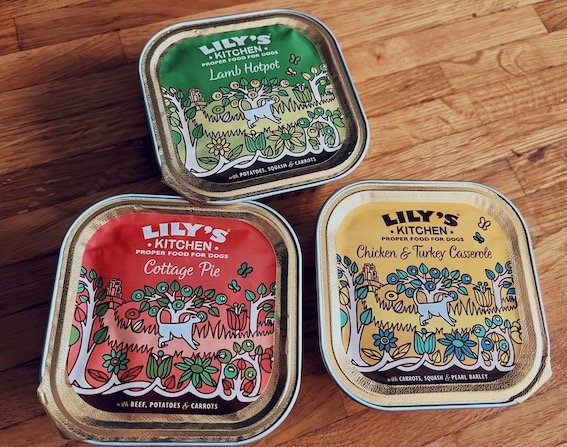What’s the Best Food for Your Dachshund? What We Learned After Trying Different Dog Foods
“What food should we feed our sausage dog?” was one of the first questions we asked when researching the breed and deciding to go ahead with getting a puppy. It can feel quite overwhelming when you’re faced with all the different options on supermarket shelves, in pet shops, and online, so we didn’t really know where to start.
In this post, I’ll walk you through our experience with choosing food for our dachshund, how his preferences and needs changed over time, and what we’ve learned from researching and trying different types of dog food.
Our Experience with Royal Canin
When we brought our dachshund home, our breeder provided a small bag of Royal Canin Puppy kibble, which he had been weaned onto. Since that was what he was used to, we kept him on it for the first few months. Once he was old enough, we switched him to Royal Canin Dachshund Adult, based on advice from our vet.
At first, everything seemed fine. But over time, we noticed he would lose interest in eating. Some days, he barely touched his food. We started mixing in Royal Canin wet food to encourage him to eat, and that worked for a short while. Eventually, he stopped eating the wet food as well.
This was the point when we realised we needed to try something different. So the search began for something better suited to his preferences and, ideally, better quality too.
What Experts Recommend for Feeding a Dachshund
When we looked more closely into what dachshunds need nutritionally, we found some really helpful guidance from Dachshund Health UK. They highlight the importance of feeding a balanced diet to help maintain a healthy weight and reduce the risk of spinal issues like IVDD. That was a bit of a turning point for us, and confirmed that quality really does matter when it comes to food.
Over time, and through trial and error, we’ve landed on a few principles that work well:
-
Look for high-quality protein as the first ingredient (clearly labelled meat or fish, not by-products).
-
Keep ingredients simple, avoiding fillers and artificial additives.
-
Check for joint-supportive extras, like omega-3s or glucosamine.
-
Watch portion sizes to avoid weight gain, which can put strain on their back.
These guidelines gave us a better framework to evaluate the foods we were trying, beyond just what he seemed to like.
What We Feed Our Dachshund Now
A friend recommended Lily’s Kitchen wet food, so we began initially mixing it with the Royal Canin dry food. The trays were a good size, came in a variety of flavours, and seemed much more appetising. Our dachshund responded really well to it, so we kept going. These are available in handy 150g trays in a wide variety of flavours, meaning that we could easily change up the tastes. They are also available in multi packs and variety packs too, as well as larger 400g cans.
Then we discovered a website called All About Dog Food, which rates dog food brands based on ingredients and nutritional quality. Royal Canin wasn’t the worst, but it didn’t score particularly well, especially when it came to meat content. Lily’s Kitchen, on the other hand, rated much higher. We decided to switch to Lily’s Kitchen dry food as well as the wet food.
Our dachshund’s favourite flavour of the Lily’s Kitchen kibble is Wild Woodland Walk with duck, salmon, and venison. It’s grain-free, comes in a few different bag sizes, and has been the most successful food we’ve tried so far. He actually gets excited for dinner, and we no longer have the issue of uneaten kibble being thrown away.
Although it costs more than some other brands, the improvement in quality and how much more he enjoys it have made it worth the investment.
Other Options We’ve Considered
We’re happy with Lily’s Kitchen, but every dog is different. We’ve also looked into other highly-rated brands, even if we haven’t personally tried them all. Many dachshund owners we know have had good experiences with other foods, so here are some options to consider if you’re still exploring:
Butternut Box
This is a fresh food delivery service that provides gently cooked meals using simple, natural ingredients. The food is delivered frozen in individual portions and stored in your fridge freezer. It scores very highly on nutrition rating websites and is often recommended for dogs with allergies or sensitive stomachs. The only downside is that you need space in the fridge or freezer to store it.
Forthglade
Forthglade offers natural wet food and cold-pressed dry food made in the UK. It contains high-quality meat, vegetables, and no artificial ingredients. Many owners like that it is widely available in pet shops and supermarkets.
Nature’s Menu
Nature’s Menu produces wet food, raw food, and freeze-dried raw toppers. It’s known for using fresh, ethically sourced meat and no artificial colours or preservatives. This brand is often recommended by owners who feed a raw or part-raw diet.
Eden and Orijen
These are high-protein, grain-free dry foods with a high percentage of meat and no fillers. They tend to be more expensive but are very popular with owners who want to feed a more biologically appropriate diet.
Should You Feed Dry Food, Wet Food, or Both?
Choosing between dry food, wet food, or a combination of the two is one of the most common questions for dachshund owners. Each type has its advantages and potential drawbacks, and the best choice often depends on your dog’s age, dental health, appetite, hydration habits, and your lifestyle.
Dry Food (Kibble)
Dry kibble is the most widely used type of dog food. It is easy to store, has a long shelf life, and is usually more affordable when compared to wet or fresh food options. Measuring portions is simple, which makes it easier to maintain a consistent feeding routine and manage your dog’s weight.
Kibble is also beneficial for dental health. The chewing action helps to reduce plaque and tartar build-up, which is especially important for dachshunds since they can be prone to dental issues as they age.
However, not all dogs enjoy kibble on its own. Some may find it bland or difficult to chew, particularly senior dogs or those with dental problems. In those cases, a softer alternative or mixing with wet food may help.
Wet Food
Wet food is often more appetising to dogs due to its stronger aroma and softer texture. Many dachshunds prefer the taste, which makes it a good option for picky eaters or dogs who have gone off their usual kibble.
It is also easier to eat, which can help dachshunds with missing teeth, sore gums, or other dental concerns. Wet food contains a higher moisture content than kibble, which supports hydration, particularly helpful for dogs that do not drink much water on their own.
That said, wet food can be more expensive to feed regularly, especially if you are serving it exclusively. Once opened, it needs to be stored in the fridge and used within a certain period. It also spoils faster if left out, so it may not suit dogs who tend to graze throughout the day rather than eat all at once.
Mixed Feeding
A combination of dry and wet food can offer the best of both worlds. By mixing the two, your dog gets the flavour and moisture benefits of wet food along with the structure and dental support of dry food.
This approach can help keep meals interesting, especially for dogs who become bored with plain kibble. It also allows you to adjust the texture and flavour depending on your dog’s preferences or needs at different life stages.
This is the method we currently use with our dachshund. We measure out his regular portion of dry food and then add a small amount of wet food to make it more appealing. It has helped with his enthusiasm for meals and ensures he gets a more varied diet.
If you are combining dry and wet food, just be careful to adjust the total quantity so you are not overfeeding. It is always worth checking the feeding guidelines on the packaging and speaking to your vet if you are unsure how much to serve.
Are Raw Diets Safe for Dachshunds?
Raw feeding is a topic that divides opinion. While many people swear by it for improved digestion and a shinier coat, it comes with some important considerations.
We personally decided not to go down the raw feeding route due to the hygiene and storage challenges (we don’t have much freezer space), but we did look into it. Advocates say that raw diets mimic what dogs would eat naturally, and there are plenty of ready-prepared raw food brands available.
However, raw diets do carry a risk of bacterial contamination (such as Salmonella or E. coli), which can be dangerous to both pets and humans. It can also be tricky to get the nutrient balance right without veterinary or nutritional guidance. If you are considering raw feeding, speak to your vet first to create a plan that suits your dachshund’s specific needs.
Tips for Choosing the Best Food for Your Dachshund
-
Check the ingredients – Look for foods with named meats (like chicken or beef) as the first ingredient. Avoid fillers like corn, wheat, or vague terms like “meat derivatives.”
-
Consider your dog’s life stage – Puppies, adults, and seniors have different nutritional needs. Choose a food labelled for the correct age group.
-
Monitor their weight and energy levels – If your dog is gaining weight or seems tired, you might need to adjust their portion size or change their food.
-
Use trusted sources for research – Websites like All About Dog Food offer unbiased ratings and allow you to compare nutritional content.
-
Introduce new food gradually – Always switch foods slowly over the course of a week to avoid stomach upsets.
Choosing What’s Right for Your Dachshund
While we’ve shared our own experience and some of the foods that have worked well for our dachshund, it’s important to remember that there isn’t a one-size-fits-all answer. Every dog is different, and the best food for your dachshund will depend on factors like their age, weight, activity level, and any specific health needs.
When selecting a food, take time to read the ingredients list carefully. Look for options with named, high-quality protein sources, and try to avoid foods that rely heavily on fillers, artificial additives, or vague terms like “meat derivatives.” Independent review sites such as All About Dog Food can be a helpful place to compare nutritional value across brands.
If you’re ever unsure, speak to your vet for personalised advice. They can help guide you based on your dog’s health history and ensure that any food you choose meets your dachshund’s nutritional needs. Investing a little time into research and thoughtful food choices can make a big difference to your dog’s long-term wellbeing.
In the end, the goal is simple: to find a food your dachshund enjoys, that supports their health, and that fits well into your routine. Whether you choose dry, wet, fresh, or a mix, what matters most is that your dog stays happy, healthy, and thriving.
If you’re just getting started, begin with a small bag or sample of the food you’re considering, and monitor how your dog responds. You’ll learn quickly what works, and you can always adjust as you go.








